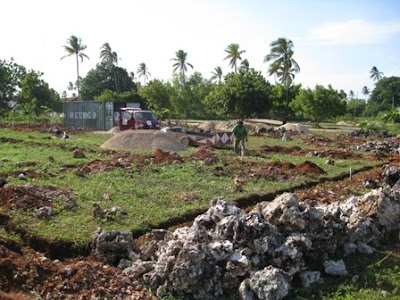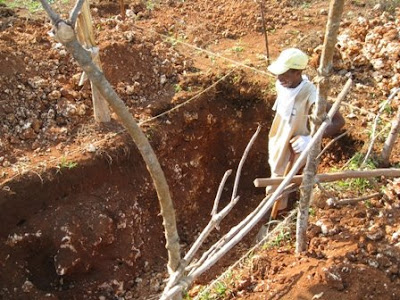Not an easy task. Not to be taken lightly.
Of course, it is easy to point out past mistakes of programs and learn from them but if we stop there it is too easy, too cowardly, too weak. The problem is that most of these “mistakes” and cultural flops were made with the best of intentions. I am under no delusion that in 20 years others will not look back on mistakes we are making and judge our decisions. As we move forward I pray we will be guided, that our plans would not only be ours but that God would intervene even if that means things take longer, don’t go as planned, or seem a failure in the sight of others. Transformation, sustainability,and development is not something I have the answers to; in my own culture let alone here, and I am much aware of my need for humility.
Just something constantly on my mind and heart. I read the following about the kind of holistic work we are doing and the following excerpts gave me more than enough to reflect on, think, on and pray on. Thought maybe others would find it challenging.
What kind of attributes of mind and heart might a holistic practitioner aspire to?
Be a good neighbor. – The requirement that we have the attitude of a good neighbor has its roots in the commandment that we are to love God and our neighbor. Chambers puts it simply, “The bottom line is be nice to people“. But being nice is only the beginning. We have to do more to be a true neighbor. Miroslav Volf, in his struggle to create a understanding of reconciliation in the context of modern Croatia and the Bosnian War oft he early 1990s, says that “we must have the will to give ourselves to others and ´welcome´ them by readjusting our identities to make space for them“. Being a good neighbor requires our willingness to change who we are.
Be patient. – Take as much time as it takes. Development does not work on a time table. Getting activities done time may make donors happy, but it is unlikely to enhance transformation or sustainability. Remember that God is willing to walk at three miles an hour because that´s the best that human beings can do.
Be humble before the facts. – We don´t know as much as we wish we did. The other person always knows more than we expect. Besides, we are both going to have to change our minds on things, anyway, as soon as new facts emerge.
Everyone is learning – It is obvious that without learning, no transformation is taking place. Sometimes we forget, however, that if everyone – the poor, the non-poor, and the holistic practitioner – is not learning, then only limited transformation is taking place.
Everywhere is holy. – We need to show respect for the everyone. After all, God was in the community before us, working there since the beginning of time.
Every moment and every action is potentially transforming. – We will never know what God uses for change until he does it. Everything we do carries a message. The only question is what that message is. Every action can heal or harm. In this sense, every action is a silent offering to God, a potentially transforming moment.
An example might help. Ravi Jayakaran reports carrying a participatory evaluation in a village in India. When he arrived with a colleague, the village brought out chairs for the visitors, while the villagers sat on mats. Ravi and his friend respectfully set the chairs aside and sat alongside the villagers on the dusty mats. They listened to the stories about the well and the school and the other things the project had accomplished. Finally, at the end of conversation, Ravi asked them: What was the most important change? An older man said: “You are sitting on the same mat, looking me in the eye, and talking to us as equals. That´s the biggest change.“ Sharing the same mat had more transformative power than digging the well or repairing the school.
Love the people, not the program. – We always need to remember why we are in the development “business,“ who our “customer” is. We are here to serve people, not programs. Donors sometimes create environments in which we forget this basic fact.
Cultivate a repentant spirit. – We all make mistakes. We will do things we will regret. Part of loving our neighbors includes willingness to go to them and repent of our mistakes and seek their forgiveness. Nothing removes the mystery surrounding our professionalism as well as repentant spirit that shows that we are accountable to God and to those whom we seek to serve.
Act like dependent people. – We need to show daily that we are people who are dependent to God and not on our professional skills, our development technology, or our financial resources. People will see for themselves in what we most truly place our trust. We need to be sure, that our trust is in God and nowhere else.
Whose reality counts? – We must guard daily against the power of our education and experience. There is always a temptation to assume our view of reality is correct in a way that adds to the poverty of the poor.
Whose values?
Whose criteria and preferences?
Whose appraisal, analysis and planning?
Whose action?
Whose monitoring and evaluation?
Whose learning?
Whose empowerment?
Whose reality counts?
Ours or theirs?

pictures from the site of the school this week

You are amazing. Have a good trip, and everything will be fine with the school because you are all so thoughtful in your planning.